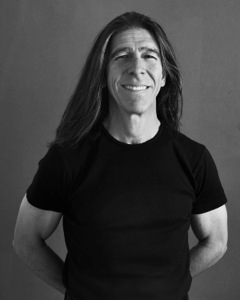 Jorge Armenteros was born in Havana, Cuba, two years after the revolution led by Fidel Castro. He and his family became political refugees in Madrid, before finally settling in Puerto Rico. He studied biomedical engineering at Harvard University, medicine at the University of Puerto Rico, Spanish and Latin American Literature at New York University and creative writing at Lesley University. His first novel, The Book of I (Jaded Ibis Press), is the story of Teaston, a painter struggling with schizophrenia. A practicing psychiatrist, Armenteros divides his time between Georgia, Florida and the south of France.
Jorge Armenteros was born in Havana, Cuba, two years after the revolution led by Fidel Castro. He and his family became political refugees in Madrid, before finally settling in Puerto Rico. He studied biomedical engineering at Harvard University, medicine at the University of Puerto Rico, Spanish and Latin American Literature at New York University and creative writing at Lesley University. His first novel, The Book of I (Jaded Ibis Press), is the story of Teaston, a painter struggling with schizophrenia. A practicing psychiatrist, Armenteros divides his time between Georgia, Florida and the south of France.
On your nightstand now:
If a book were to be on my nightstand, it would never be read. I fall asleep instantly. But on my breakfast table, I have several novels by Laird Hunt, including The Impossible and Kind One.
Favorite book when you were a child:
The first novel I ever read was a Spanish translation of Mark Twain's The Adventures of Huckleberry Finn. I had so much fun that I did not realize I was reading. That was all it took to make me a lifelong reader.
Your top five authors:
For inspiration and discipline, I sometimes create a collage portrait of my literary genealogy, and it includes particular works as much as authors. Some of those works--the ones I consistently return to--include Julio Cortázar's Hopscotch, Marguerite Duras's Blue Eyes, Black Hair, Virginia Woolf's The Waves, Roberto Bolaño's The Savage Detectives and Jorge Luis Borges's Ficciones.
Book you've faked reading:
I never read Crime and Punishment. However, I did listen to the entire novel on tape. It feels like I have read it, and I speak about it as if I had. So I guess I have read it, or at least listened to it attentively as if my eyes were on the page.
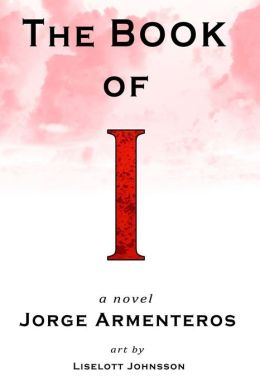 Book you're an evangelist for:
Book you're an evangelist for:
So many books, so many worthy authors! I identify myself more with the nature of a cause than with any one book in particular. And the cause that moves me is that of literary fiction, in particular the nontraditional, the one that takes risks, the one that takes flight. But if I were to shed light into a recent book worth universal attention, that would be Roberto Bolaño's The Savage Detectives.
Book you've bought for the cover:
Never, as far as I can remember, have I bought a book for its cover. I choose the books I read very carefully, like you would choose a good friend.
Book that changed your life:
I think every book changes our life a little. Each one delivering us a step beyond the previous one. I think my life has been forged by the amalgam of narratives that have filtered through my brain. But I must admit that Cortázar's Hopscotch inspired me to become a writer. And as Pablo Neruda said: "Anyone who doesn't read Cortázar is doomed. Not to read him is a grave invisible disease, which in time can have terrible consequences. Something similar to a man who had never tasted peaches. He would be quietly getting sadder, noticeably paler, and probably little by little, he would lose his hair. I don't want those things to happen to me, and so I greedily devour all the fabrications, myths, contradictions, and mortal games of the great Julio Cortázar."
Favorite line from a book:
The first lines from Vladimir Nabokov's Lolita are musically delicious: "Lolita, light of my life, fire of my loins. My sin, my soul. Lo-lee-ta: the tip of the tongue taking a trip of three steps down the palate to tap, at three, on the teeth. Lo. Lee. Ta."
Character you most relate to:
I relate most intimately to Stephen Dedalus in James Joyce's A Portrait of the Artist As a Young Man. His questioning and rebellious nature and his adoption of a philosophy of aestheticism resonate with me. And I am inclined to share his "destiny" to create art.
Book you most want to read again for the first time:
Gabriel García Márquez's One Hundred Years of Solitude contains so many surprises for the uninitiated. It would be like touching ice for the first time, or like discovering the magic of moving pictures.
Your inspiration for The Book of I:
The first image was born out of a desperate need to start a new project. I had promised myself I was starting a novel that day. It felt like standing on the edge of a very high cliff looking down into the vastness of the sea. And that is how Teaston opens the book. From there on, everything in the book comes from that white center inside my brain--the unconscious--oozing out of me every time I sit down to write. I never follow any preconceived plot or idea. I never know how will the words behave that day. Every time that I sit down to write it's a mystery and a surprise to me.
 "The pleasure of a book can be further heightened by the way in which it is bought. There is nothing luxurious about buying a book on Amazon, with its grim efficiency, bright white webpages and impersonal clicks. Likewise, there's little pleasurable about paying for a book at the robotic self-service checkouts of the supermarket or WH Smith. These are places of deals and vouchers, built to maximize speed of transaction. By contrast, going into a good bookshop--and to have survived, they have to be good--is a joy. These are places where you are greeted by a real person, where the air is thick with the dusty smell particular to books, the hushed enthusiasm of conversations which meander delightfully unalgorithmically, and the thrill of discovery."
"The pleasure of a book can be further heightened by the way in which it is bought. There is nothing luxurious about buying a book on Amazon, with its grim efficiency, bright white webpages and impersonal clicks. Likewise, there's little pleasurable about paying for a book at the robotic self-service checkouts of the supermarket or WH Smith. These are places of deals and vouchers, built to maximize speed of transaction. By contrast, going into a good bookshop--and to have survived, they have to be good--is a joy. These are places where you are greeted by a real person, where the air is thick with the dusty smell particular to books, the hushed enthusiasm of conversations which meander delightfully unalgorithmically, and the thrill of discovery."








 In response to Barnes & Noble's second-quarter earnings announcement yesterday--sales slipped and the net gain was less than expected--B&N stock fell 5.4%, to $21.03 a share, on about six times the usual trading volume.
In response to Barnes & Noble's second-quarter earnings announcement yesterday--sales slipped and the net gain was less than expected--B&N stock fell 5.4%, to $21.03 a share, on about six times the usual trading volume.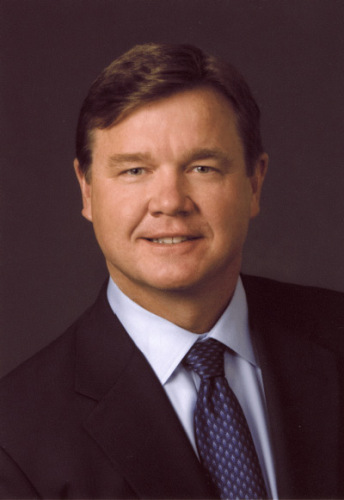
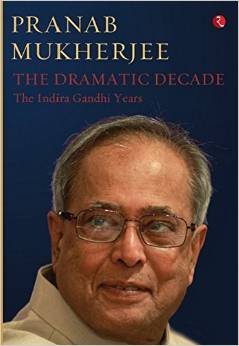 Industry backlash has been fast and vehement, as "prominent shops like Om Bookstore and Bahri Sons have decided to boycott Rupa and are in the process of sending back its earlier books," IANS wrote.
Industry backlash has been fast and vehement, as "prominent shops like Om Bookstore and Bahri Sons have decided to boycott Rupa and are in the process of sending back its earlier books," IANS wrote.
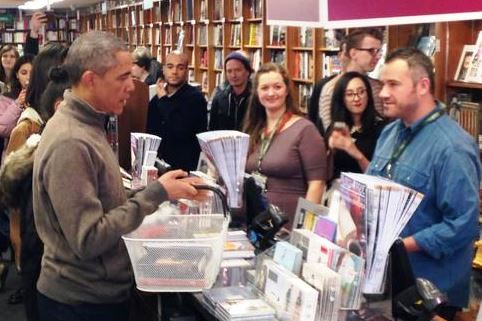
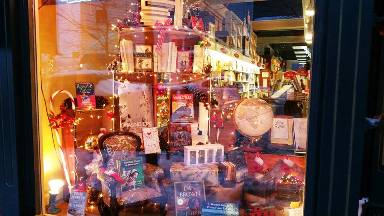
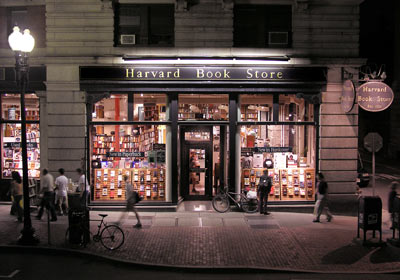 For Carol Horne, the general manager of
For Carol Horne, the general manager of 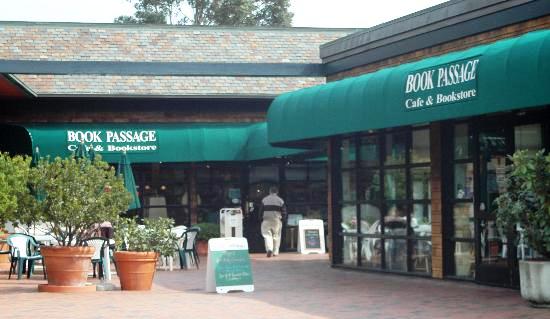 Elaine Petrocelli, co-owner of
Elaine Petrocelli, co-owner of 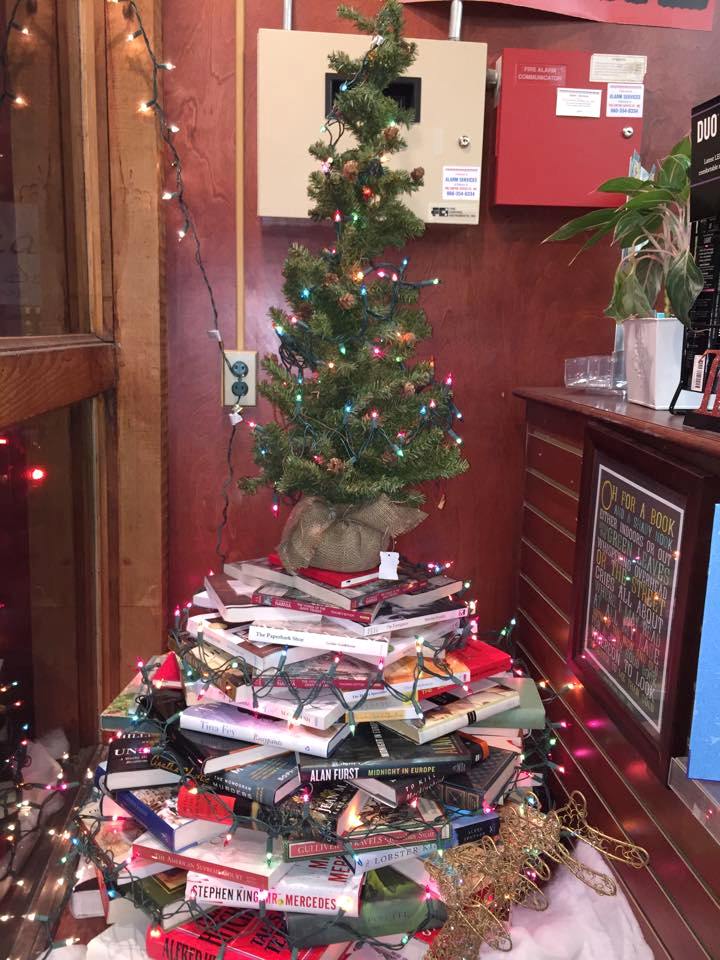
 Mike DeSanto, owner of
Mike DeSanto, owner of 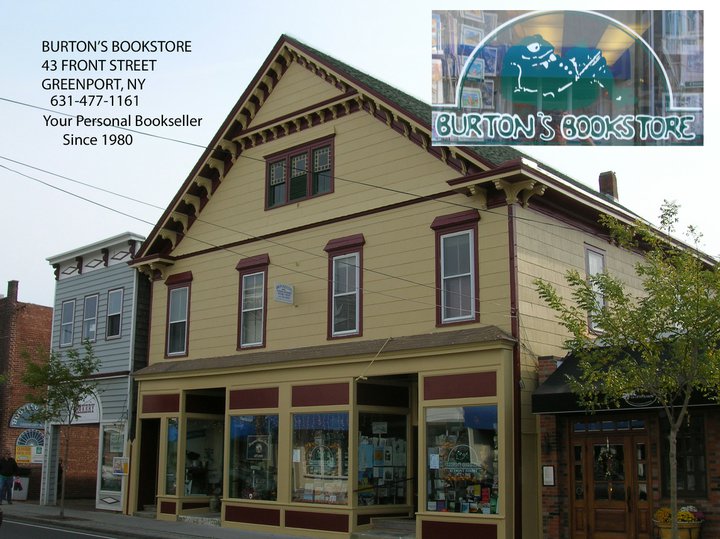 "I don't feel like bookstores are dying," Scott Raulsome, the new owner of
"I don't feel like bookstores are dying," Scott Raulsome, the new owner of 
 Book you're an evangelist for:
Book you're an evangelist for: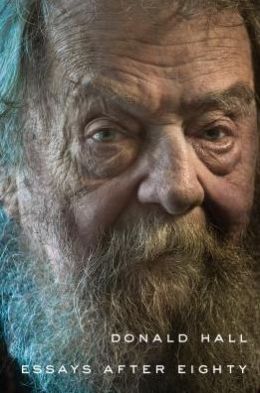 Bearded and etched with lines like a dry riverbed, the face of poet and essayist Donald Hall (The Best Day the Worst Day) gazes out from the cover of his collection Essays After Eighty. The unretouched honesty of that visage telegraphs the frankness, pathos and humor of these 14 essays about the "ceremony of losses" that is old age.
Bearded and etched with lines like a dry riverbed, the face of poet and essayist Donald Hall (The Best Day the Worst Day) gazes out from the cover of his collection Essays After Eighty. The unretouched honesty of that visage telegraphs the frankness, pathos and humor of these 14 essays about the "ceremony of losses" that is old age.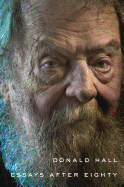
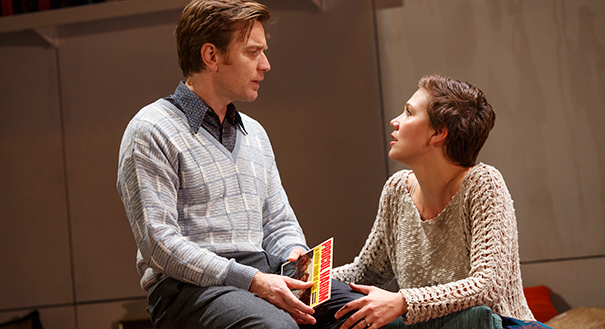 When I heard Henry (Ewan McGregor) speak those lines Tuesday night during a performance of the Broadway revival of Stoppard's play, it occurred to me that the challenge of getting the right words in the right order while adapting a book for the stage must present an intriguing challenge all its own.
When I heard Henry (Ewan McGregor) speak those lines Tuesday night during a performance of the Broadway revival of Stoppard's play, it occurred to me that the challenge of getting the right words in the right order while adapting a book for the stage must present an intriguing challenge all its own.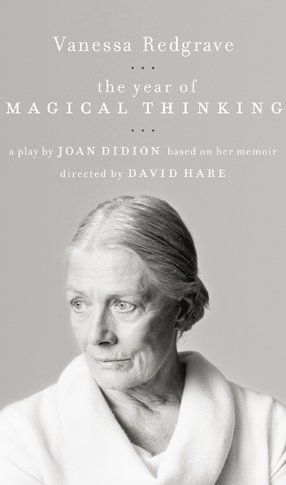 I've seen and loved several book-to-stage adaptations in recent years, including Fiona Shaw in Colm Tóibín's
I've seen and loved several book-to-stage adaptations in recent years, including Fiona Shaw in Colm Tóibín's 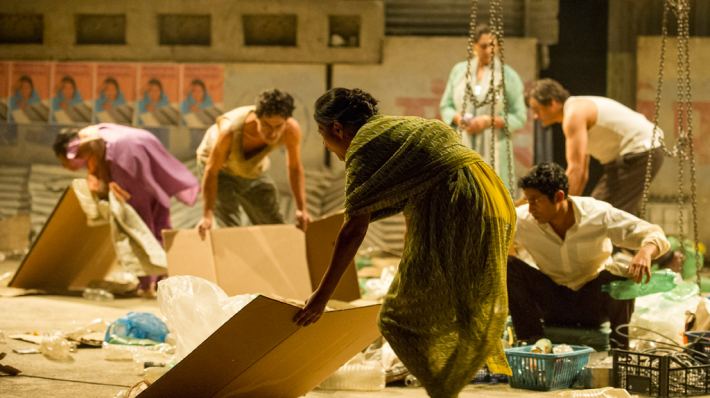 A stage version of Katherine Boo's National Book Award-winning
A stage version of Katherine Boo's National Book Award-winning 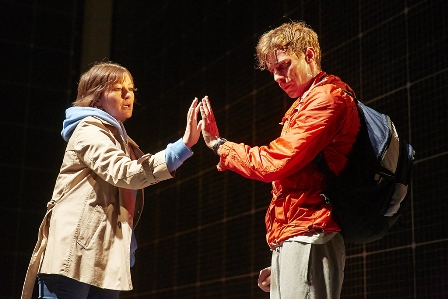 Simon Stephens adapted Mark Haddon's novel
Simon Stephens adapted Mark Haddon's novel